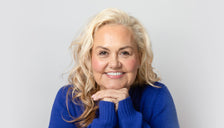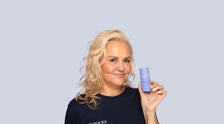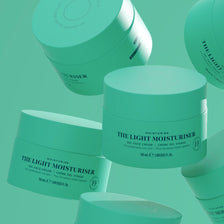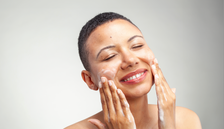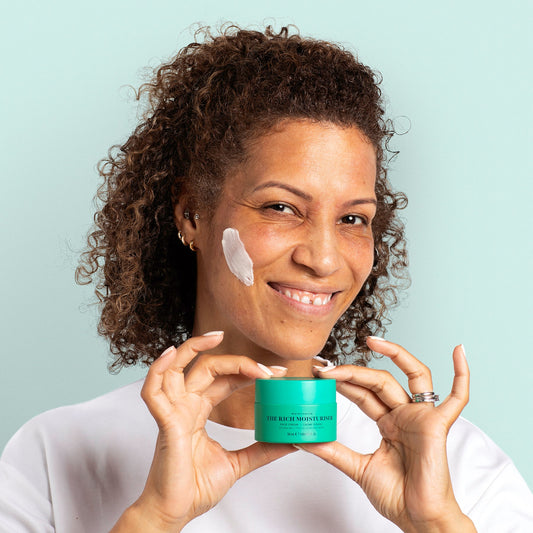Skin Rocks Retinoids
What is it?
Retinal, also known as retinaldehyde, is a type of retinoid. Retinoids are vitamin A derivatives – some common examples are retinal, retinol and retinyl retinoate.
Retinoids are widely known as the gold standard for reversing the signs of ageing such as fine lines and wrinkles. They can also reduce the appearance of hyperpigmentation and help to normalise skin function, reducing excess oil production and unclogging pores – making them beneficial for acne-prone skin.
How is it different to retinol?
Both retinol and retinal are vitamin A derivatives but their main difference when it comes to skincare lies in their strength. In terms of chemical structure, the two only differ by one bond and two hydrogen atoms, so they are very closely related. This is because they are part of the same metabolic pathway.
Once applied topically, retinoids must be converted to retinoic acid (aka tretinoin, the most active form of vitamin A) in order to have the same effect. Retinoids go through several metabolic steps to achieve this, and each conversion step weakens the strength of the product. This conversion occurs through the following steps:
Retinol esters ➟ retinol ➟ retinaldehyde ➟ retinoic acid
So, retinal is essentially the next level up from retinol. It is the next metabolic step meaning that it is closer to the active form and the body needs to do less work to convert it once applied (it has the potential to work over 10 times faster than retinol). This renders retinal stronger and more effective than retinol, but it also means it has the potential to be more irritating since it acts more quickly on the skin.
Benefits:
The benefits are pretty similar to retinol but retinal will yield results faster:
-
Reducing signs of ageing by increasing the rate of cellular renewal, stimulating collagen synthesis
-
Decongesting and improving skin texture through increasing cell turnover (this makes it effective for treating acne)
-
Evens out skin tone by inhibiting the activity of tyrosinase, the enzyme responsible for the production of melanin
-
Hydrating and plumping the skin by reducing water loss
Who is it for?
Like all vitamin A derivatives, retinal is for people who want to:
-
Reverse or prevent the signs of ageing
-
Improve acne
-
Reduce pigmentation
However, since retinal is stronger than retinol, it is best suited to those who are used to retinol and want to level up. If you are a first-time vitamin A user, you might want to opt for retinol itself or a gentler derivative such as hydroxypinacolone retinoate (HPR).
There is no specific age at which you should start using a retinoid – this depends on your skin concerns and sensitivity. If you are new to retinoids, you may have heard that you should expect to experience redness, dryness, flaking skin and general irritation. However, scientific advances in recent years have led to more sophisticated products that reduce reactions dramatically. If your skin feels tight, very irritated or your regular moisturiser begins to sting, you should give the product a break and focus on applying nourishing products until your skin feels back to normal. As always, it is best to introduce any vitamin A product to your routine slowly.
When should you use it?
It is always best to use any retinoid in the evening, as they can sensitise the skin and leave it more susceptible to sun damage. Retinoids are most effective when used directly after cleansing and for maximum efficacy, it is best to wait up to 20 minutes before applying your next product. Always follow up with SPF 30 or 50 in the morning.
Try these:
- Medik8 Crystal Retinal
- Youth To The People Retinal and Niacinamide Youth Serum
- Skin Rocks Retinoid 2
- Trinny London Overnight Sensation
Words by Ceyda Faik-Yildirim
Qualifications – MSci Chemistry











